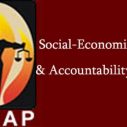The NBA-SBL Business Law Weekly is a series of webinar programs designed to educate the Nigerian business and legal communities on matters affecting the local business environment and how to thread past the terrain.
The program has discussed varying topics and issues over the past series. For Series 12 held on February 23, 2023, Financing Opportunities and Challenges for Inclusive Agribusiness was considered, with an in-depth discussion of factors impeding the growth of Agribusiness in Nigeria. The Session was coordinated by NBA-SBL’s Agriculture Law Committee ably chaired by Perenami Momodu; Partner, AELEX and moderated by Aderonke Alex-Adedipe; Partner, Pavestones Legal and 2nd Vice-Chair NBA-SBL’s Agriculture Law Committee, featuring Solape Akinpelu; CEO, HERVEST and Country Director, Women in Tech Global, Nigerian Chapter and Kenneth Obiajulu; Co-Founder and CEO, Agricorp Holdings Limited (UK)
.
The outcome of the discussion have been summarized into five (5) key lessons:
1. According to Kenneth Obiajulu, the agricultural sector does not just constitute a large part of the Nigerian economy, but also the labour force of the African Society. 78% of these population engage in unsophisticated and under-structured subsistence farming system, cultivating on about one hectare or less of the land mass. The remaining percentage comprise of the few middle and large scale businesses. This negates the value-based approach to commercial farming which strives only where there is food security. Food security means that the food must be available, accessible and fit for use while maintaining sustainability. For every one(1) hectare, the maximum food output must be produced to ensure full optimization of land resources and financial input. However, it is a known fact that inaccessibility to funding has plagued the SMEs and MSMEs that constitute the larger statistics of the Nigerian agricultural sector.
2. Factors that encourage the continued existence of this cancer are numerous. Solape Akinpelu opines that the major factor is the existence of a non-business orientation amongst these farmers, especially the women, leading to low adoption of financial services. This is as a result of lack of social permission to actively participate in commercial farming. These social issues include limitations on land acquisition/inheritance by women, inaccessibility of production equipment and innovations, inadequate agribusiness education and awareness and lastly a misinformed belief that the utilization of financial and banking services is a sign an unsuccessful business. Kenneth Obiajulu states that a poor understanding of Agribusiness (due to disparity in approach), operational system and investment nature are the basis why he considers the financial aid provided by private sectors as a short term solution. He posits that the agricultural space differs from other sectoral spaces in the following ways;
(a) Agribusiness involves all the factors of production
(b) It is characteristed by under utilisation and incompetent appraisal of the credit system of agro-projects and investments.
(c) The nature of its investment is usually a medium to long term output, hence, a prolonged realisation of funds.
Both speakers spoke on the difficulty in meeting funding criteria especially in public sector and concurred that it arose from the lack of digital visibility and an evidence of capacity to produce. This lead to the last factor being the absence of appropriate infrastructure to support digitized, well-structured and sophisticated agro financing system.
3. As a means of eradicating these impeding factors, both speakers agreed that the first and most important means of building a structure for agro financing is a shift in mindset and attitude towards agriculture from a mere culture to a sophisticated business system. This can be achieved by apportioning an amount of the funding to the liberation of beneficiaries from this mindset. Also, there should be investment in farmer’s education and awareness on matters like structured medium and strategies for farming, marketing insurance schemes for farmers, education on available credit system to be undertaken. An extension of funding beyond basic production to the secondary aspect of farming such as processing, distribution and marketing should be promoted to ensure a value-based system of farming. This would increase the growth from a 3-5% business margin to a 25% margin. Ineffective and unimplementable paper-worthy policies and funding systems (where a bulk of the funds is tied to the operation of the funds) should be abandoned. There must exist a perfect blend of public-private partnership where public spending is channeled to necessary infrastructure to ensure adequate production.
4. Policy change to attract adequate investors was proposed by both speakers. This is done by
• Creation of apt policies like policies influencing land ownership/acquisition and sensitisation of the target audience.
• Promotion of participation in financial activities evidencing a capacity to produce.
• Use of inclusive and participatory funding.
• Elimination of red-tapism in implementation process to attract investors and DRC marketers.
• Stabilization of determining investment factors as currency value, growth fostering environment etc.
5. Talking about financing opportunities in HERVEST, a digital platform providing financial inclusion for women through a Gender Lens Investment (GLI) approach, Solape Akinpelu said that its target are women in rural areas and might allow alias members (men who are interested in Agribusiness and investing). The investment approach adopted is the impact investment approach, a P2P method of pooling funds which employs the collation of accurate data to beat volatility. To promote inclusive and participatory agri tech finances, it adopts the use of USSD codes. The advantages include a measurable, traceable and digitized financial visibility system. It also uses the blended financing approach to upgrade skills of beneficiaries while ensuring accessibility of funds.
To listen to the previous episodes of the Business Law Weekly, click the link below
https://nbasbl.org/resource/sblblw-audio/






